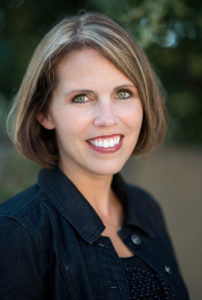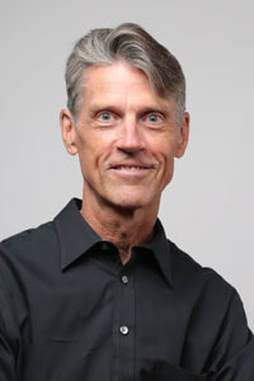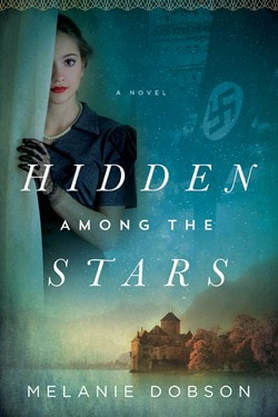 A lawyer and college professor, Cara Putman’s skills in crafting solid, fast-paced legal fiction comes from a mixture of experience and imagination (unless she’s actually been chased down by an angry drug cartel leader, which I hope is not the case). Delayed Justice, the latest book in the Hidden Justice series (Beyond Justice and Imperfect Justice round out this trilogy) features a great blend of solid writing and a good story. When did you first realize you were a storyteller? I have always loved books, but I was 13 or 14 when I actively started writing and dreaming up stories of my own. When I started college at 16, life wasn't really my own, so I stopped writing until I was 31. But I have always read voraciously. I must read. I must be surrounded by story. So, it makes it natural that I see stories all around me and itch to tell them. What do you love about the writing process? I love the research. I love the discovery of the characters. To me the hardest part is the beginning. Getting the idea cemented in my mind. Figuring out how the characters will interact and what they really want. Then I hit a point where the story simply flows. That is the best! I love to live in that space where I can't wait to get back to writing. It carries me through the not as fun parts. What is the hardest part of being a writer? How solitary it is. I'm an extrovert, so I can't just write. I have to have space to interact with people and pour into them. That's why the combination of writing and teaching at a world-class university works so well for me. I also don't enjoy the early stages of wrestling for the next big idea. Where do you find your inspiration? I find my inspiration all around me. For the Hidden Justice series it was in newspaper articles and in people I know. I take many different situations and pull them together and twist them up into something new and different. That's where the germ of the story is located. And that's what keeps me writing and marketing for the months each story requires. What are you working on right now? I'm in the idea germinating stage. I have several floating around in my mind and trying to flesh a couple up enough to sell to my publisher. These will be standalone legal ideas and that excites me! To find out which of these ideas blossoms into her next novel, follow Cara on her website.
2 Comments
 Photo Courtesy of The University of Texas. Photo Courtesy of The University of Texas. H.W. Brands, who holds the Jack S. Blanton Sr. Chair in History at the University of Texas at Austin, is a master storyteller. But instead of creating worlds of his own, Brands introduces readers to America’s past in a way that engages as it educates. One of the best historians in the nation, his narrative biographies on Benjamin Franklin and FDR were both finalists for The Pulitzer Prize. His narrative style is conversational, yet refined in a way few are able to match. When did you first realize you were a storyteller? When I became teacher. I first taught high school math, and I found that my stories about math hooked my students on the subject. As I segued to history, I kept telling stories. Still am. What do you love about the writing process? The only part I don't like is reading page proofs. At that point the scope for revising is severely limited. I find myself wishing I could make changes my editors won't allow, for cost reasons. Everything else I like. What is the hardest part of being a writer? I haven't found any hard parts yet. See above. If it was hard, I wouldn't do it. Where do you find your inspiration? The reason I write history is that you couldn't make this stuff up. No one would believe you. History is an inexhaustible supply of tales about the comedy and tragedy of being human. What are you working on right now? My book Heirs of the Founders will be published in November. My next book is a history of the American West, currently called Dreams of El Dorado. To be published in the fall of 2019. To find out more about Brands and what he is working on next, check out his website.  I received a complementary copy of Hidden Among the Stars in exchange for an honest review of its merits. To begin with, it is best to establish that I am not one who fancies a romance novel when I am picking up a book to read. I don't mind romantic elements, and tend to include them in my own novels, but for me character motivation is most important. That being said, I enjoyed the characters and their drives for the most part in this book. The time-slip nature of this tale involved two storylines, one in the present and one 80 years earlier during the opening days of World War II. As a former World History teacher, I appreciated the author's strong research into into pre-war Europe, as this helps the reader connect to the era. The development of the love triangle between Luzia, Annika and Max is well-crafted throughout the story, leading up to climatic reveal at the end. The idea of missing Jewish treasures is a fascinating sub-plot to the storyline. The love story in the present between Callie and Josh flows along at a natural, if halting, pace. There are significant barriers between the two and it is clear why her past rejection is crippling forward momentum in this area. I was intrigued by the brash actions of one of the clearly undesirable suitors. I was shocked by his behavior, but, sadly, did not find it unbelievable, just a highly disappointing example of my gender. One of the most endearing aspects of this work is where Callie, the Story Lady, is often quoting famous lines from children books when she faces challenges in life. If she were spouting Bible verses, the story would seem too preachy, but the fact that she finds wisdom in the stories she shares with kids at her store every week gives the character an air of authenticity that rings true. On the whole, Melanie Dobson weaves together two disparate time periods to deliver a well-told tale. SPOILER ALERT - If you wish to remain in the dark about my thoughts on the ending, please stop reading here. OK, since you are still with me, here we go… The only aspect of the book that doesn't ring true is the climax. I get the noble nature of the sacrifice Annika makes so Luzia and her unborn child are not taken away, but, in my estimation, this makes her a weaker character, not a stronger one. She already has to give up on Max because he loves Luzia (we will look past her son's true parentage, which I thought was well, if painfully, told), but does she also have to give up on a relationship with Hermann just so she can play the "best friend ever" role. I would contend that she does act with honor but, in reality, passively sublimates her needs for someone who will never really understand her true feelings for him. There may a religious covering over the entire affair, but it seems a poor excuse for her actions. Then again, all that is subjugated upon the assumption that authors direct the actions of characters, rather than characters doing what comes natural to them. In the end, the Dobson asks if I agree with Annika's actions. I, for one, do not, but maybe I am not supposed to. Just like Luzia is not supposed to end up with her first love either, which is the second of many tragedies in this story. The fact that I don't agree with the actions of a character may be exactly why Dobson allowed her character to do what she did In addition, the ending seemed overly sentimental but I tend to be much more forgiving of such endings on screen than in print, so that might be a wholly unfair criticism to make as well. By the way, don't forget to enter the Amazon gift card giveaway! |
AuthorI've been writing stories and taking photos since I was old enough to hold a pencil and stand behind a tripod. Archives
February 2024
Categories
All
|
 RSS Feed
RSS Feed